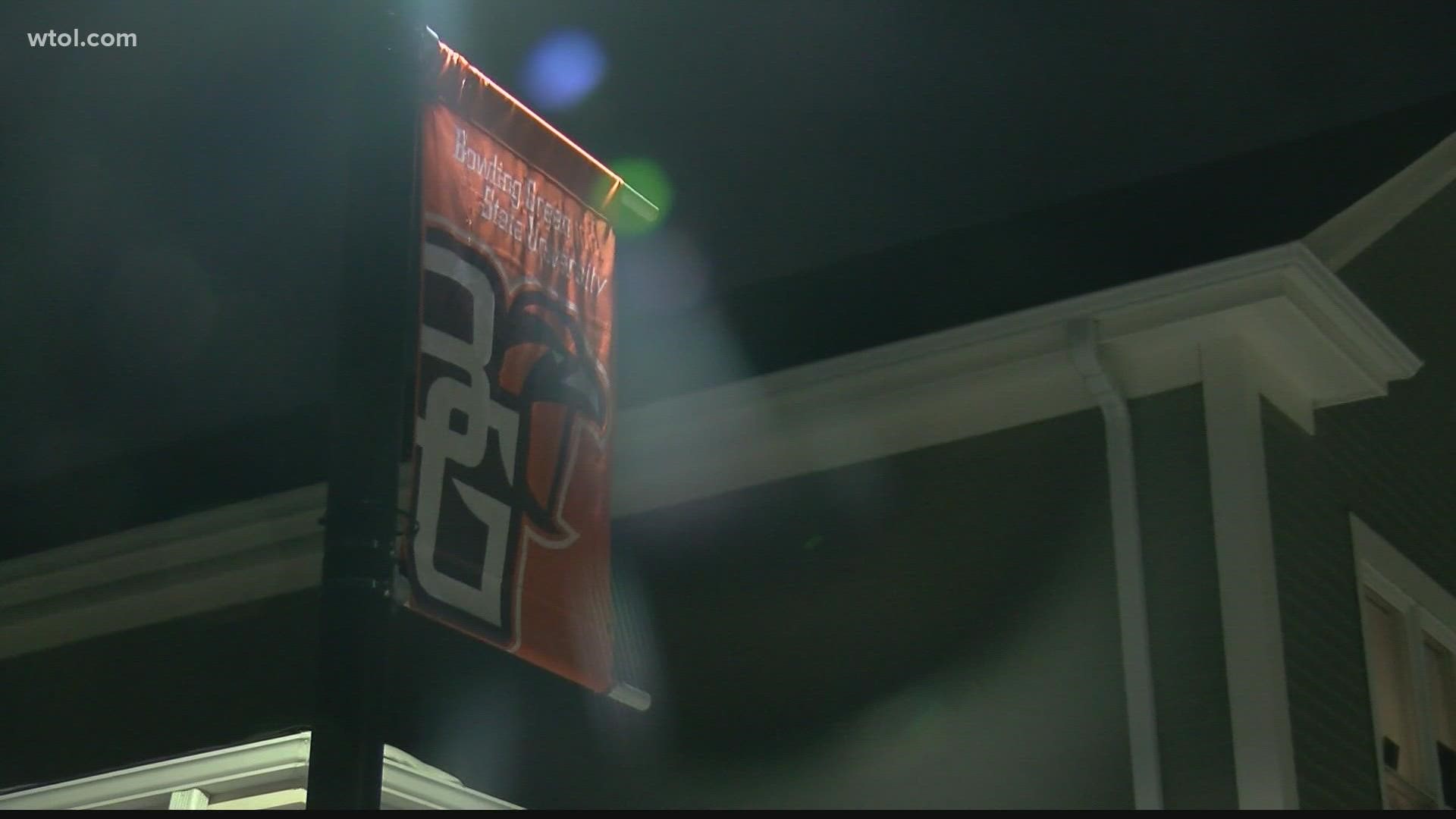BOWLING GREEN, Ohio — One Bowling Green State University fraternity was suspended Tuesday, and a second fraternity had its suspension extended following allegations that included hazing and parties with excessive drinking.
It's been less than a year since Bowling Green State University sophomore Stone Foltz died as the result of an alcohol-fueled hazing incident. Eight BGSU students faced criminal charges following his death, ranging from manslaughter to reckless homicide.
To avoid similar incidents, the university has been cracking down on the remaining fraternities, most recently Delta Chi and Phi Delta Theta.
According to BGSU spokesperson Alex Solis, the Delta Chi fraternity was suspended in the summer of 2021 after being accused of a hazing violation of the code of student conduct. Since then, Solis said the university received "concerning" reports about the fraternity's off-campus activity.
Some of those offenses include reports of an underage student being hospitalized after over-drinking at a party and an alleged hazing incident that included forced consumption of hot sauce and illegal trespassing.
The university's Phi Delta Theta chapter also was suspended Tuesday, and accepted responsibility for violations that included having alcohol parties resulting in 911 calls.
However, one student said these suspensions are going too far.
"They're parties and trash; yes that is littering, and yes that's bad, but to suspend us for four years because of it? We're a social fraternity," Luke Grunden, a member of Delta Chi, said.
He said he feels the whole situation has been blown out of proportion.
"I can understand how, if you want to get into the definitions of hazing and stuff, that we're technically making them do this to get entry, yes, I will not argue that. That's wording, or whatever, but I also have told this to my parents and adults and they say it seems kind of silly," Grunden said.
He said that following the hazing death of Stone Foltz last March, fraternities have been under intense scrutiny to prevent a similar incident, creating a no-tolerance policy environment.
"I would never want to hear something like Stone Foltz happening again, that was tragic, gone way too soon, for stupid reasons, and extremely preventable; and you hear stuff and they're trying to compare you, and in a Cleveland report yesterday they said, 'You think they would sense up', and we did sense up," Grunden said.
According to him, since Foltz's death, on-campus Greek life has changed substantially, with a culture of self-policing rising up among the different fraternities.
"I've definitely seen changes and discussions happening of like, 'We shouldn't be doing that because that is hazing,'" Grunden said.
But, Rex Elliot, an attorney representing the Foltz family said in an official statement Wednesday that these fraternities "still don't get it" and that universities, including Bowling Green, need to do better.
“The announcement that Bowling Green State University has suspended two fraternities over hazing and alcohol violations proves that fraternity members still don’t get it as they continue to engage in the types of practices that tragically ended Stone’s life," he said. "BGSU and all universities must do more because mere suspensions have never worked to stop these illegal activities. Zero tolerance is the only way to prevent injury and death. We demand more from Universities on down, or we will continue to read about more tragedies just like Stone’s completely preventable death.”
In the wake of Foltz's death, BGSU officials promised reforms and embraced calls for zero-tolerance of hazing on all of Ohio's college campuses. President Rodney Rogers said the university was committed to eradicating hazing at BGSU.
The legal landscape has changed since 2021 as Ohio lawmakers responded to Foltz's death by passing a sweeping anti-hazing law that broadens the definition of hazing, increases legal penalties and expands the list of officials who are required to report hazing incidents.
Collin's Law was named for 18-year-old Ohio University freshman Collin Wiant who died in a 2018 hazing incident at an off-campus fraternity house in Athens, Ohio.
Among other provisions, the law specifies that hazing may include "coercing another to consume alcohol or a drug of abuse," and also requires staff and volunteers on college campuses to undergo training on hazing awareness and prevention.
Wood County Prosecutor Paul Dobson filed charges against eight people in connection with Foltz's death, but said earlier this week that no charges are as yet in the works in the latest incidents.
"This office has no current actions pending against these fraternities or any members relative to these incidents," Dobson said.

